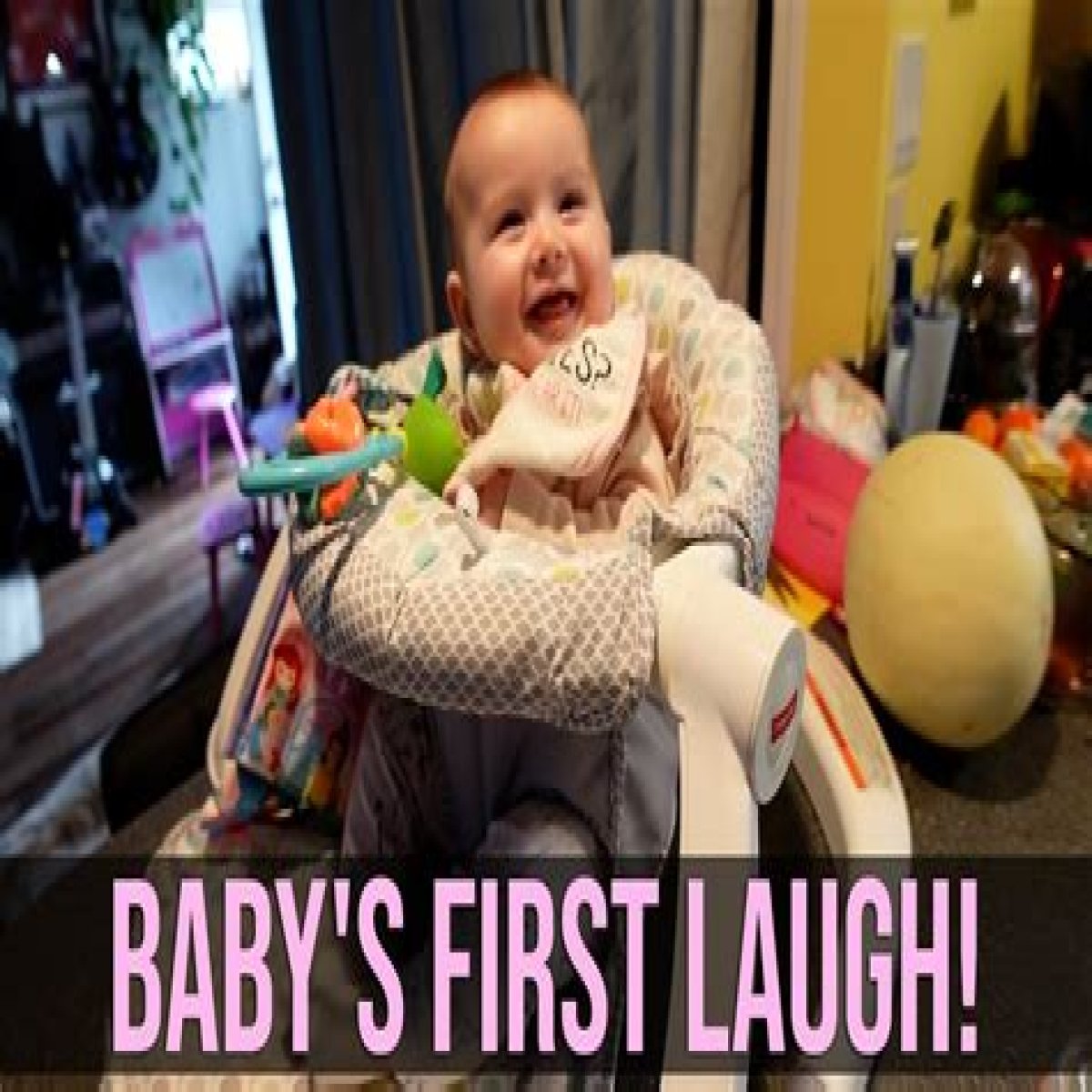Every new parent eagerly awaits the moment their little one bursts into laughter for the very first time. Baby's first laugh is not just a milestone; it is a delightful symphony of emotions that resonates with joy, love, and connection. The sound of a baby's laughter can fill a room with warmth and happiness, creating cherished memories that last a lifetime. This magical moment signifies more than just a reaction; it reflects the bond between parent and child and the wonder of discovering the world through a baby's eyes.
As parents, we often find ourselves captivated by the simplest of joys that our babies bring into our lives. The first giggle, the first smile, and ultimately, the first laugh are milestones that mark a child's growth and development. These moments remind us of the beauty of life and the unfiltered joy that comes with innocence. Capturing baby's first laugh is not only a personal triumph for parents but also a treasured memory that can be shared with family and friends, bringing everyone closer together.
In this article, we will explore the significance of baby's first laugh, what it means for development, and how parents can encourage this joyful expression. Additionally, we will delve into the different ways to capture and celebrate this special moment. Join us on this heartwarming journey as we uncover the magic behind baby's first laugh!
- What is the Significance of Baby's First Laugh?
- When Do Babies Typically Laugh for the First Time?
- What Does Baby's First Laugh Indicate About Development?
- Can Laughter Have Long-Term Benefits for Babies?
- What Other Milestones Accompany Baby's First Laugh?
- How Can Parents Foster a Joyful Environment for Laughter?
What is the Significance of Baby's First Laugh?
Baby's first laugh is a significant developmental milestone that marks the beginning of a child's social engagement and emotional expression. Laughter is a form of communication that showcases a baby's ability to interact with their surroundings. Research suggests that laughter can enhance cognitive development and strengthen bonds between parents and children.
When Do Babies Typically Laugh for the First Time?
Most babies laugh for the first time between the ages of three to four months. However, each child is unique, and some may giggle earlier or later than this range. Factors such as personality, environment, and parental interaction can influence the timing of this joyous milestone.
How Can Parents Encourage Their Baby to Laugh?
Encouraging laughter in babies can be a delightful experience for parents. Here are some effective ways to elicit those giggles:
- Engage in playful activities: Use funny faces, silly sounds, and gentle tickling.
- Play peek-a-boo: This classic game can stimulate excitement and laughter.
- Introduce toys that make noise: Rattles and musical toys can spark laughter.
- Be animated: Your enthusiasm can be contagious!
What Does Baby's First Laugh Indicate About Development?
Baby's first laugh is often an indicator of their developing social skills and emotional understanding. Laughter signifies that the baby is beginning to engage with others and comprehend social cues. It can also reflect the baby's sense of security and comfort in their environment.
Can Laughter Have Long-Term Benefits for Babies?
Absolutely! Laughter has numerous long-term benefits for babies and children:
- Enhances emotional development and resilience.
- Promotes social bonding and relationships.
- Contributes to cognitive growth and problem-solving skills.
- Encourages a positive outlook and emotional well-being.
How Can Parents Capture and Celebrate Baby's First Laugh?
Capturing baby's first laugh can be a memorable experience. Here are some tips for parents to consider:
- Keep a camera or smartphone handy to record the moment.
- Share the moment with family through social media or video calls.
- Create a scrapbook or journal documenting the milestone.
- Celebrate with a small family gathering to share the joy.
What Other Milestones Accompany Baby's First Laugh?
Baby's first laugh is part of a series of remarkable milestones that occur during the first year of life. These milestones often include:
- First smile (around 6-8 weeks).
- First words (around 12 months).
- First steps (around 9-15 months).
- First meaningful interactions (around 3-6 months).
How Can Parents Foster a Joyful Environment for Laughter?
Creating a joyful environment is essential for nurturing a child's laughter and happiness. Here are some suggestions:
- Encourage playtime with siblings and peers.
- Incorporate music and dance into daily routines.
- Read funny books or tell silly stories.
- Maintain a positive atmosphere with laughter and love.
Conclusion: The Lasting Impact of Baby's First Laugh
Baby's first laugh is a moment filled with magic and significance. It represents a developmental milestone that fosters connection, joy, and emotional growth. As parents, capturing and celebrating this moment can create lasting memories that resonate throughout the child's life. By nurturing an environment that encourages laughter, parents can support their child's overall development and create a home filled with love, laughter, and happiness. Cherish these moments, for they are the essence of parenthood and the foundation of a joyful life.
Rising Stars: Hollywood Actors Male Under 30 Making WavesUnderstanding The Journey Of Arousal: What Age Does Arousal Start?Unveiling Rihanna's Heritage: What Is Rihanna's Race?
BABY'S FIRST LAUGH YouTube
Baby's First Laugh YouTube
Baby's First Laugh? You Decide YouTube
